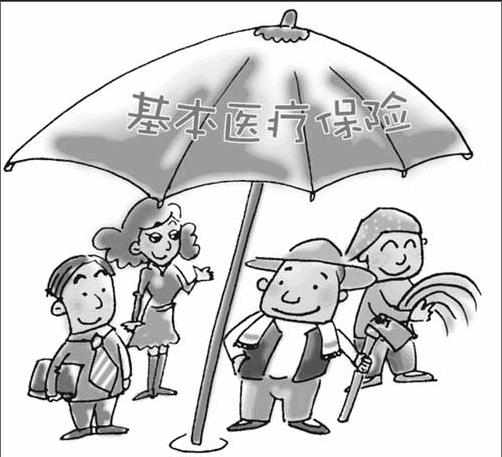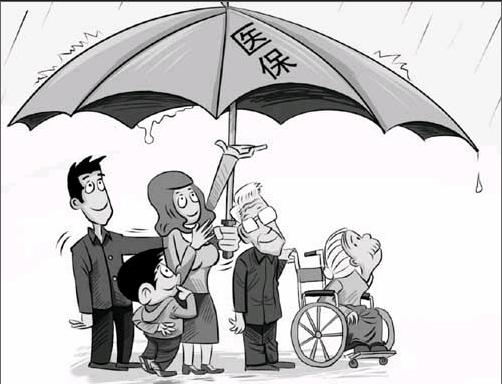Health Insurance Continuance of Laid-off Workers Shouldn`t be Prolonged Any More
2016-11-08


The status quo of dual-track medical insurance system will make the Law just a dead letter and those laid-off workers who contract illness will thereby be got rid of the rights of medical insurance benefits.
Youth teacher Liu Lingli from Lanzhou Jiaotong University Bowen College was expelled by the college because of her cancer. Therefore, her social insurance was discontinued and medical fees couldn`t be reimbursed. She then had to earn money for her treatment by being a street vendor. But unfortunately, she left the world with complaints at last after struggling with illness. Under great social opinion pressure, Bowen college resumed its labour relationship with Liu and also compensated medical fees which were incurred by the college`s cessation of medical insurance for Liu. The miserable fate of Liu might have seen a stop, but the problem embedded in this issue couldn`t be terminated correspondingly.
According to the labour protection terms, workers who contracted diseases could enjoy medical treatment period at the very start. During the period, employers were not entitled to break labour contracts unilaterally. However, according to some laws, employers have the rights to stop the labour relationship unilaterally after this period. Once labour contract is broken, laidoff workers or patients are assuredly in unemployed state. So after being expelled, do they still have medical insurance? What about the medical insurance they paid when they were still employed?
According to China`s social insurance policy, employers must pay “Five Types of Insurances” for their workers, i.e. endowment insurance, medical insurance, unemployment insurance, employment injury insurance and maternity insurance. If employers have paid these five types of insurance, then workers` unemployment insurance compensation should be activated immediately once employers stop labour relationship with workers. That is to say, workers are able to get unemployment insurance benefits. How long workers could get this type of insurance depend upon how long they have paid before they were expelled. In general sense, the shortest period is three months, and the longest period won`t exceed 24 months, i.e. two years.
After reading carefully relevant Chinese laws, it is interesting to find that there are two ways of settlements for laid-off workers to get medical fees during the valid period, namely, dualtrack system.
One of the ways is laid-off workers apply for medical compensation to unemployment insurance funds. How much medical compensation they could get differs in different administrative regions. For example, the Hu-nan provincial government regulates the monthly medical compensation is 5% of their unemployment insurance, the percentage of Henan is 10%, and the compensation is 10 yuan in Gansu. For those who contract serious illness, their medical fees could be partly reimbursed after social insurance administrative institutes agree. The compensation rate varies in different regions (around 70% of the unemployment insurance generally), but the total amount is rather limited. The upper limit of the total amount is 24 times over laid-off workers` monthly unemployment insurance for Hunan; 10 months` unemployment insurance for Henan, the total unemployment insurance for Gansu; there is no set upper limit for Shanghai; the regulation for Beijing is also very complicated.endprint

The other way is to continue with laid-off workers` medical insurance and let them continue to enjoy that type of insurance. However, laid-off workers don`t need to pay medical insurance by themselves and this part is paid by unemployment insurance funds. In order to ensure medical insurance are paid permanently without pauses, some regulations demands laidoff workers to pay medical insurance just before their unemployment insurance terminates. At present, places of Guangdong, Shenzhen, Xiamen and Jinan, etc. have implemented this regu-lation.
By comparison of these two ways, we can find that it is more reasonable and more beneficial to patients to continue with their medical insurance than apply for medical compensation. What original intentions of the national medical insurance system are and what workers expect from paying medical insurance is to hope medical insurance could act as a safety net when workers contract illness, especially serious illness. However, when one worker unfortunately contracts illness and then loses his job, it is the time he needs medical insurance benefits most. Once his medical insurance is disrupted, he could no longer enjoy the insurance. This is seriously contradictory to what the system aims and what workers expect. Besides, even if laid-off workers could get some unemployment insurance benefits with efforts, the amount is strictly limited and some provinces like Gansu have the strictest terms. Under such strict terms, what benefits laid-off workers could get is far lower than what they could get from reimbursement amount under the medical insurance system. If laid-off workers have serious illness, those benefits have very little impact. Thirdly, if one worker`s medical insurance is disrupted after loses job, his medical insurance couldn`t be continued with his previous one and he has to establish one new account after he gets a new job. Its impact on medical treatment is very huge, especially after retirement.
Let`s get back to the teacher Liu Lingli for analysis. She paid unemployment insurance and medical insurance when she worked in Wenbo College. After she was expelled, she should have got unemployment insurance benefits because she was already unemployed at that time. But actually, she might haven`t got any help from the insurance. According to Gansu Province regulation, Liu Lingli who joined work only for three years could only receive unemployment insurance benefits for six months; the standard for 2015 is 1009 yuan per month. During the six months, the medical benefits she could get were only 60 yuan, and the highest reimbursement amount she could get as an inpatient was only 6054 yuan. Even we suppose she got such benefits, but how could this help her with so serious illness? Or in other words, what help could she get after six months?endprint
If we imagine that her medical insurance were continued after she was expelled, then she could get certain protection at least. Actually, after Liu was expelled from the college, her family once begged the college harshly not to discontinue Liu`s medical insurance even if the amount was to be paid by themselves. But the college didn`t agree. On the one side, this reflects how merciless Liu`s employer is; but the main reason is there is no such terms as to continue with laid-off workers` medical insurance in Gansu Province Implementation of Unemployment Insurance Terms, which directly leads to some authorities` inactivity.
The question in front of us is that, why medical insurance could be continued in some places and medical insurance is replaced by medical benefits in other places, both directing at laidoff workers?
It`s easier said than done. Article 19 included in State Council Unemployment Insurance Terms implemented on 22nd Jan of 1999 reads:“Laid-off workers, who contract illness during the period they receive unemployment insurance benefits, could apply for medical benefits to social insurance administrative institutes. The standards of medical benefits are set by people` governments.” At present, what the country adopts is the medical benefits system, and there are various terms concerning medical benefits.
Article 48, included in Social Insurance Law implemented in 2011, regulates: “During the period that laid-off workers receive unemployment insurance, they participate basic staff medical insurance and enjoy basic medical insurance benefits. Medical insurance should be deducted from unemployment insurance funds and they don`t need to pay basic medical insurance by themselves.” At present, places where laid-off workers` medical insurances are continued with are all based on this law.
Although Social Insurance Law is ten years later than Unemployment Insurance Terms, the former belongs to the law concept and the latter belongs to the term concept, obviously the former is more lawful than the latter. However, the Terms hasn`t been abolished, and implementation methods in many places based on the Terms are still valid. That`s how two different systems occur in one country. Apparently, the status quo will make the Law just a dead letter and those laid-off workers who contract illness will thereby be got rid of the rights of medical insurance benefits. For the sake of the legal rights of workers and for the sake of the law respect, the problem of laid-off workers` medical insurance continuance shouldn`t be prolonged any longer. endprint
endprint
杂志排行
中国经贸聚焦·英文版的其它文章
- Wang Baoan Head of China’s Statistics Bureau Probed for Corruption
- Xu Gang Fujian Vice Governor under Graft Probe
- Liu Jixing President of Military Court Promoted as Lieutenant General
- Chen Chuanping Party Secretary of Taiyuan on Trail
- China Hammers out Tougher Subsidy Plan for Electric Vehicles
- Samsung suffers backlash in China over the ”faulty response”
